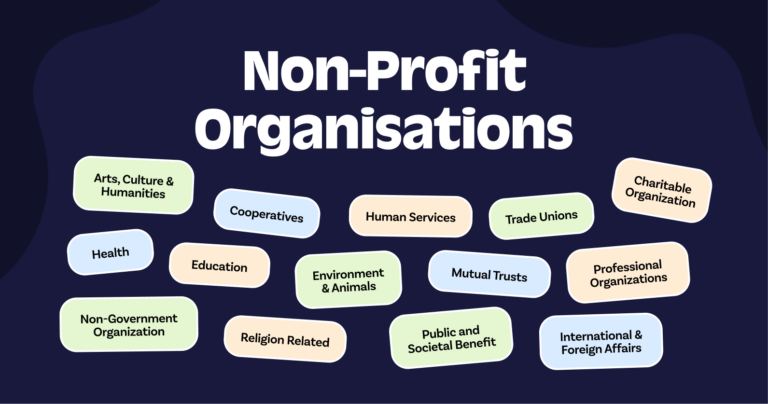Absolute junk nyt – Frustrated with tricky NYT crosswords!
The New York Times (NYT) crossword puzzle is often hailed as one of the most iconic puzzles in the world, challenging millions of minds daily with its clever wordplay, obscure clues, and intricate grid designs.
However, not every crossword solver walks away satisfied. The term “absolute junk” has started to make rounds, especially in online communities where solvers vent their frustrations. Why do some puzzles elicit such a strong reaction? What drives crossword enthusiasts to label certain clues or puzzles as “absolute junk”?
In this article, we’ll dive into the growing debate around crossword quality, the term “absolute junk,” and what it reflects about NYT’s crosswords. We’ll provide an in-depth look at why some puzzles are received poorly, analyze the reasons behind user complaints, and explore how the NYT can address these concerns to maintain its legacy of excellence.
What Does “Absolute Junk” Mean in the Context of NYT Crosswords?
For those unfamiliar, the phrase “absolute junk” is typically used to describe a crossword puzzle that a solver finds either unfair, too difficult, poorly constructed, or filled with obscure references that feel more frustrating than fun. This phrase has been thrown around in crossword-solving communities, particularly on social media and online crossword forums.
Why Are Some NYT Crosswords Criticized?
Despite being one of the most respected puzzle platforms, the New York Times isn’t immune to critique. Crossword aficionados care deeply about the craft of solving and creating puzzles, and they have strong opinions when it comes to what makes a puzzle enjoyable or frustrating.
1. The Push for Innovation
Crossword puzzles evolve, and so do the expectations of solvers. Over time, the NYT has attempted to keep its puzzles fresh by experimenting with newer themes, clues, and cultural references. While this keeps the puzzles modern and engaging, it also introduces elements that may frustrate long-time solvers who prefer traditional clue styles.
2. Cultural Disconnect
What feels familiar to one demographic might feel alien to another. In recent years, NYT puzzles have tried to reflect a more diverse array of cultural references. While inclusivity is a noble goal, some solvers may feel excluded when they encounter references from unfamiliar pop culture, slang, or global events, leading to accusations of “absolute junk.”
3. The Rise of Social Media Venting
With online platforms like Reddit, Twitter, and crossword-specific forums, it’s never been easier for solvers to share their opinions. Previously, complaints may have remained private. Now, those frustrations are broadcast to thousands, amplifying the perception that some crosswords are subpar.
4. Decline in Editorial Quality?
While some claim the editorial quality of the NYT crossword has slipped, others argue that the puzzle is simply evolving. Nevertheless, when solvers find clues that seem hastily written, awkwardly phrased, or just plain wrong, the resulting backlash can be intense.
Addressing Criticisms: Is the NYT Listening?
The NYT crossword editor and the puzzle team have, on many occasions, addressed solver feedback. They take pride in curating a diverse, challenging, and often boundary-pushing set of puzzles.
However, with so many voices, it can be challenging to cater to every solver’s tastes. Here are some ways the NYT could potentially respond to critiques:
- Curating a Balance of Easy and Hard Clues: Ensuring that puzzles provide a fair mix of clue difficulty can help reduce frustration, particularly on early-week puzzles. The balance ensures that solvers of all skill levels can enjoy the puzzle experience.
- Avoiding Overly Obscure References: While it’s essential to challenge solvers, including excessively obscure references can feel alienating. Ensuring that clues remain fair—even when difficult—would keep puzzles engaging without feeling like “absolute junk.”
- Promoting Constructive Feedback: While social media will always have complaints, encouraging constructive puzzle critiques rather than negative venting can help crossword editors better understand where solvers’ frustrations lie.
The Role of Technology: Online Crossword Communities
Online crossword communities have become central to the modern crossword-solving experience. Websites and forums allow solvers to share tips, tricks, and solutions with others. However, these platforms also serve as hotbeds for criticisms of particular puzzles.
Sites like Rex Parker Does the NYT Crossword Puzzle, along with crossword blogs and discussion threads, provide a space for fans and critics alike.
Many of these forums house solvers who appreciate a good challenge but also aren’t afraid to call out puzzles they consider to be “absolute junk.” These discussions can be incredibly valuable to editors, as they represent a real-time snapshot of solver sentiment.
How to Navigate Challenging Puzzles Without Feeling Frustrated
If you’re someone who often finds yourself struggling with NYT crosswords, here are a few tips to help reduce your frustration:
- Use Crossword Tools: There’s no shame in using online tools or dictionaries to help solve tricky clues. These can provide assistance without taking away the satisfaction of finishing the puzzle.
- Practice Makes Perfect: The more crosswords you solve, the more patterns, clues, and answers you’ll recognize over time. You’ll get a sense of common crossword tricks and themes that reappear regularly.
- Don’t Give Up Too Quickly: Sometimes a puzzle may seem impossible, but taking a break and returning later can offer a fresh perspective. You may suddenly see connections you missed before.
Conclusion:
The phrase “absolute junk” may be harsh, but it reflects the deep passion crossword solvers have for their craft. Crosswords offer a unique blend of challenge, learning, and satisfaction that few puzzles can match.
While the NYT continues to push boundaries with its puzzles, it’s essential to listen to the community’s feedback to ensure that the crosswords remain enjoyable for solvers of all levels.
FAQs:
1. What makes a crossword puzzle considered “absolute junk”?
A puzzle may be deemed “absolute junk” when solvers feel it is unfairly difficult, filled with obscure references, inconsistently challenging, or poorly constructed.
2. Why are some NYT crossword puzzles criticized?
Criticisms arise due to factors like obscure clues, inconsistent difficulty, excessive use of proper nouns, or puzzles that feel uninspired.
3. How can the NYT improve its crossword puzzles?
The NYT can continue listening to feedback, balance clue difficulty, and avoid overly obscure references to maintain solver engagement.
4. What is the role of online crossword communities?
Online communities offer solvers a platform to share insights, tips, and critiques, allowing them to engage with others who share a passion for crosswords.
5. How can solvers handle challenging crosswords without getting frustrated?
Using tools, practicing regularly, and taking breaks when needed are all strategies that can help solvers tackle tough puzzles without feeling overwhelmed.
6. Why is crossword difficulty inconsistent?
Crossword difficulty is designed to escalate throughout the week, but solvers may occasionally find early-week puzzles unusually challenging due to specific clues or themes.
7. How can feedback improve crossword quality?
Constructive feedback allows editors to adjust clue styles, difficulty levels, and puzzle construction techniques to better meet solver expectations.
8. Are all NYT crossword puzzles reviewed before publishing?
Yes, the NYT crossword puzzles go through a review process, but occasionally clues or answers slip through that solvers may find unfair or poorly executed.
9. Can crossword puzzles cater to all audiences?
While crosswords strive for inclusivity, it’s challenging to create puzzles that cater to every demographic, especially with varying levels of pop culture knowledge and expertise.
10. Is venting on social media about crosswords productive?
While venting is common, offering constructive criticism is more helpful for editors and can lead to better puzzles in the future




